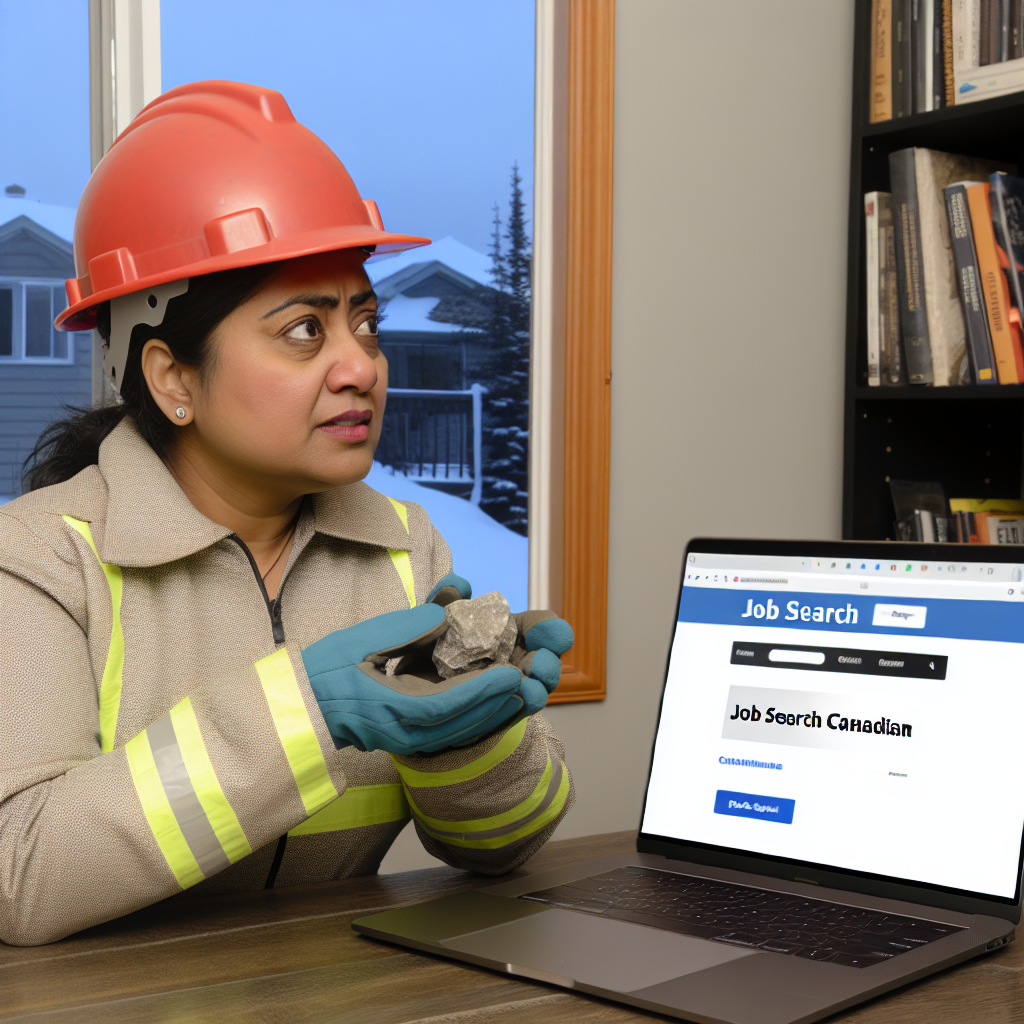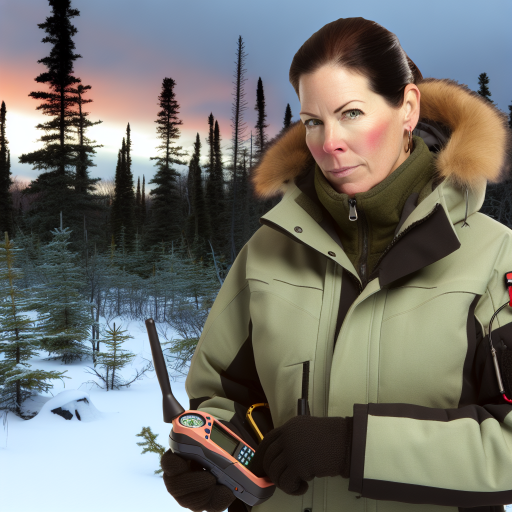Overview of the Geologist Profession in Canada
The geologist profession plays a vital role in Canada’s resource management.
Geologists study the Earth’s materials, processes, and history.
They help uncover natural resources and assess environmental impacts.
In Canada, geology is a key field due to diverse geological features.
The country hosts mountains, plains, and vast mineral deposits.
Consequently, many companies seek qualified geologists for various projects.
Job Roles and Responsibilities
Geologists in Canada perform a variety of tasks.
They conduct field studies to collect data on geological formations.
Additionally, they analyze samples in laboratories.
Geologists also create detailed maps and reports.
These documents inform the exploration and extraction of resources.
Moreover, they advise companies on safe mining practices.
Industries Employing Geologists
Geologists find employment in several industries in Canada.
Mining companies are major employers due to abundant resources.
Additionally, oil and gas companies require geologists for exploration.
Environmental consulting firms also hire geologists for assessments.
Furthermore, government agencies employ geologists for regulatory compliance.
Educational Requirements
To become a geologist in Canada, individuals typically need a degree.
A bachelor’s degree in geology or earth sciences is the minimum requirement.
Many positions, however, prefer candidates with master’s degrees.
Professional certification from organizations is also valuable.
Continuing education helps geologists stay updated on new technologies.
Career Opportunities and Trends
The job market for geologists in Canada is expected to grow.
Increased demand for natural resources drives this growth.
Additionally, there’s a focus on sustainable practices in resource extraction.
Unlock Your Career Potential
Visualize a clear path to success with our tailored Career Consulting service. Personalized insights in just 1-3 days.
Get StartedThis trend opens new roles in environmental geology and consulting.
Networking and professional organizations can help geologists find opportunities.
Key Responsibilities and Duties of Geologists
Fieldwork and Data Collection
Geologists conduct extensive fieldwork to gather samples and data.
This process involves taking soil, rock, and water samples.
Furthermore, they document geological formations and landforms.
They also analyze the physical and chemical properties of samples.
Research and Analysis
Geologists perform detailed research using various tools and methods.
They use geophysical techniques to explore subsurface conditions.
Moreover, they analyze data collected during fieldwork.
This analysis helps in understanding geological processes and formations.
Risk Assessment and Environmental Impact
Geologists assess risks associated with geological hazards.
They provide insights into potential natural disasters like earthquakes.
Additionally, they evaluate the environmental impact of geological projects.
They ensure projects comply with environmental regulations and standards.
Collaboration and Reporting
Geologists often work in teams with other professionals.
They collaborate with engineers, environmental scientists, and planners.
Additionally, they prepare detailed reports on their findings.
These reports inform stakeholders about geological conditions and risks.
Consultation and Project Management
Geologists often serve as consultants for various projects.
They advise on site selection for construction and resource extraction.
Furthermore, they help develop strategies for resource management.
They oversee geological assessments during project development.
Educational Pathways and Required Qualifications
Overview of Educational Qualifications
A career as a geologist in Canada often starts with a solid educational foundation.
Most geologists hold at least a bachelor’s degree in geology or a related field.
Common majors include Earth Sciences, Environmental Science, and Geography.
Some positions may require a master’s degree or even a Ph.D.
Furthermore, specialized training can enhance job prospects in certain sectors.
Essential Coursework and Practical Experience
Students should focus on relevant courses that build essential skills.
Key subjects often include mineralogy, petrology, and geophysics.
Additionally, courses in environmental science and data analysis are beneficial.
Practical field experience is crucial in geology programs.
Internships or co-op placements provide hands-on learning opportunities.
Certification and Licensing Requirements
In Canada, geologists may need to obtain certification through a recognized body.
Provincial regulatory organizations oversee the licensing process.
The level of certification can vary by region and specific job roles.
Additionally, an applicant may need to complete a series of exams.
Professional associations often provide resources for certification preparation.
Continued Education and Professional Development
Continuing education is vital in the ever-evolving geology field.
Workshops, conferences, and additional courses help geologists stay current.
Membership in professional organizations offers networking opportunities.
Additionally, many organizations offer access to valuable resources and research.
Continuous learning fosters advancement in career roles and responsibilities.
Discover More: Epidemiology and Its Role in Public Health Crises
Licensing and Certification Requirements for Geologists in Canada
Overview of Licensing Requirements
In Canada, practicing geologists must obtain proper licensing.
This requirement varies by province or territory.
Each region has its own regulatory body overseeing the licensing process.
Generally, the license ensures that geologists adhere to professional standards.
Educational Background
A bachelor’s degree in geology or a related field is essential.
Many provinces require an accredited program.
Additionally, advanced degrees may enhance job prospects.
Relevant coursework in mathematics and sciences is also beneficial.
Work Experience Requirements
Most provinces mandate work experience before granting licenses.
This experience typically spans two to four years.
Candidates often work under licensed professionals as interns.
Hands-on experience in fieldwork is crucial for skill development.
Certification Process
Candidacy for certification follows completion of educational and experience requirements.
Each province has specific steps for certification applications.
Applicants usually need to submit references from licensed geologists.
A professional exam may also be required to assess competency.
Continuing Education
Once licensed, geologists must engage in continuous learning.
This requirement ensures that professionals stay updated on industry standards.
Many regulatory bodies mandate a certain number of professional development hours annually.
Attending workshops, seminars, or additional courses fulfills these requirements.
Professional Associations
Joining professional associations can be beneficial for geologists.
Associations often provide resources for continuing education.
They also offer networking opportunities within the professional community.
Membership can enhance credibility and career advancements.
Delve into the Subject: Canadian Universities Offering Geology Programs
Major Industries and Employers Hiring Geologists
Mining and Resource Extraction
The mining industry is a top employer for geologists in Canada.
Companies like Barrick Gold and Teck Resources lead this sector.
These companies engage in mineral exploration and extraction.
They seek skilled geologists for various exploration projects.
Environmental Consulting
Environmental consulting firms also hire geologists extensively.
Firms such as Golder Associates and AECOM focus on environmental assessments.
Geologists help evaluate potential impacts of projects on the environment.
They conduct site investigations and remediation planning.
Oil and Gas Sector
The oil and gas industry presents significant job opportunities.
Companies like Suncor Energy and Canadian Natural Resources require geologists.
These professionals analyze geological data for resource exploration.
They play a crucial role in drilling and production activities.
Government and Public Sector
Government agencies employ geologists for research and policy development.
Organizations such as Natural Resources Canada hire experts for various projects.
Geologists participate in natural resource management and conservation efforts.
They also contribute to geological surveys and mapping initiatives.
Academia and Research Institutions
Academic institutions offer positions for geologists as well.
Universities like the University of Alberta engage scientists in research.
Geologists may teach or conduct research on important geological issues.
They often collaborate on projects related to climate change and sustainability.
Industry and Impact
Geology plays a vital role in multiple sectors.
Geologists contribute to economic growth and environmental stewardship.
They help ensure sustainable practices in resource management.
The demand for their expertise continues to rise across Canada.
You Might Also Like: Marine Biology Careers in Canada: Exploring Oceans and Aquatic Ecosystems
Job Market Trends and Demand for Geologists
Current Job Market Overview
The job market for geologists in Canada is dynamic and evolving.
As industries grow, the demand for skilled geologists has increased significantly.
Recent trends indicate a strong need for professionals in resource management.
Furthermore, environmental concerns drive the demand for geological expertise.
Growing Sectors for Geologists
Several sectors actively seek geologist professionals in Canada.
The mining industry remains a major employer for geologists.
Oil and gas exploration sectors also exhibit significant job opportunities.
Additionally, environmental consulting firms are expanding their geologist workforce.
Renewable energy projects require geological assessments for site evaluation.
Regional Demand Variations
Job opportunities for geologists vary widely across Canada’s regions.
British Columbia offers numerous positions due to its abundant natural resources.
Ontario also sees high demand, particularly in mining and environmental sectors.
Alberta focuses heavily on oil and gas-related geology roles.
Skills and Qualifications Required
Employers typically seek candidates with specific skills and qualifications.
A degree in geology or earth sciences is essential for most positions.
Additionally, familiarity with geographic information systems (GIS) is often preferred.
Strong analytical and problem-solving skills enhance a candidate’s appeal.
Moreover, fieldwork experience is highly valued in practical applications.
Future Job Outlook
The future for geologists in Canada appears promising.
Emerging technologies in geological surveys are expected to create new roles.
Moreover, increased focus on sustainable practices will amplify demand.
Government investments in environmental protection also indicate growth potential.
Find Out More: Day in the Life of a Canadian Geologist

Salary Expectations and Compensation Packages
Overview of Geologist Salaries
The salary for geologists in Canada varies widely.
Entry-level positions typically start at around $50,000 per year.
However, experienced geologists can earn upward of $120,000 annually.
Factors such as location and industry play a crucial role.
For instance, roles in the oil and gas sector often pay more.
Conversely, geologists in academic settings may earn less.
Regional Salary Variations
Salaries differ significantly across provinces.
Alberta generally offers the highest compensation for geologists.
In contrast, Newfoundland and Labrador may have lower average salaries.
Cities like Calgary and Edmonton are known for lucrative opportunities.
Remote locations can also provide generous financial incentives.
Compensation Packages
Many companies offer competitive benefits along with salaries.
Medical, dental, and retirement plans are common components.
Some positions include bonuses linked to performance metrics.
Relocation assistance often helps candidates moving for roles.
Additionally, companies may provide professional development stipends.
Additional Financial Incentives
Geologists can also explore various financial incentives.
Overtime pay may apply for fieldwork and project deadlines.
Some employers offer profit-sharing schemes as well.
Travel allowances can support fieldwork expenses.
Moreover, flexible work arrangements can enhance job satisfaction.
Tips for Job Searching and Networking in the Geology Field
Utilize Job Boards and Websites
Exploring various job boards can enhance your search for geologist positions.
Websites like Indeed, Glassdoor, and LinkedIn offer numerous listings.
Additionally, specialized sites like GeoJobs and Earthworks focus on geology careers.
Leverage Professional Associations
Joining professional associations can open doors in the geology community.
Organizations like the Canadian Geological Association provide networking opportunities.
These groups often host events and workshops relevant to geology professionals.
Networking Best Practices
Networking is crucial in finding geology job opportunities.
Attending industry conferences allows you to meet potential employers.
Moreover, reaching out via LinkedIn can establish valuable connections.
Consider joining local geology clubs to expand your network further.
Tailor Your Resume and Cover Letter
Customizing your resume improves your chances of landing interviews.
Highlight relevant skills and experiences directly related to the job.
Additionally, use strong action verbs to make your contributions clear.
Your cover letter should reflect your passion for geology and the specific role.
Prepare for Interviews
Researching the company before interviews is essential.
This knowledge allows you to ask informed questions and demonstrate interest.
Practice common interview questions to bolster your confidence.
Showcase your knowledge of geology trends and challenges during discussions.
Stay Informed About Industry Trends
Keeping up with geology trends shows your commitment to the field.
Follow industry news via reputable sources and academic journals.
Additionally, subscribe to newsletters from geological organizations.
Your awareness of current events can set you apart from other candidates.
Professional Development and Continuing Education Opportunities
Importance of Professional Development
Professional development is essential for geologists in Canada.
It enhances skills and keeps up with industry trends.
Moreover, it can open doors to new job opportunities.
Available Courses and Certifications
Numerous institutions offer specialized courses for geologists.
Universities like the University of Alberta and McGill University provide advanced degrees.
Additionally, various online platforms offer valuable certifications.
- Geological Engineering by Coursera
- Environmental Geology by edX
- Petroleum Geology from AAPG
Workshops and Seminars
Workshops and seminars play a crucial role in professional growth.
Organizations like the Canadian Geological Association hold regular events.
These events encourage networking and collaboration.
Participants gain insights from industry leaders and experts.
Networking Opportunities
Connecting with other professionals is vital for career advancement.
Networking events allow geologists to share knowledge and experiences.
Conferences such as GeoConvention bring together experts from diverse backgrounds.
- Networking breakfasts
- Coffee breaks during sessions
- Evening receptions
Online Resources and Communities
Online platforms offer valuable resources for continuous learning.
Websites like LinkedIn and ResearchGate encourage professional connections.
Online forums help geologists discuss challenges and solutions.
Moreover, webinars often cover current topics in geology.
Staying Updated with Industry Trends
Professionals must keep abreast of new technologies and discoveries.
Subscriptions to geological journals provide insights into recent research.
Joining professional associations also keeps members informed.
- Canadian Institute of Mining, Metallurgy and Petroleum
- Geological Society of America
- Association of Professional Engineers and Geoscientists of Alberta




